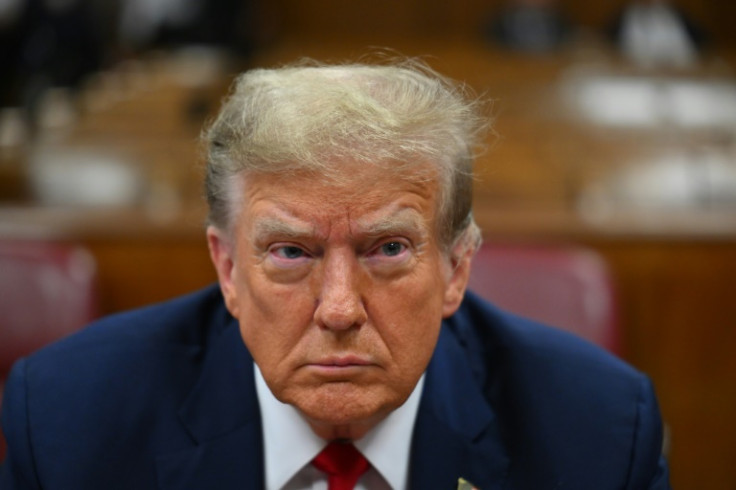
NEW YORK CITY - Former President and presumptive GOP candidate Donald Trump started a trial on Monday where he faces charges on hush money he allegedly paid to adult film actress Stormy Daniels and Playboy model Karen McDougal. Trump is making history as the first former president to stand trial on criminal charges.
The businessman turned politician is facing 34 counts on criminal charges for falsifying business records. This was allegedly done as part of a scheme to bury damaging stories that he feared could hurt his 2016 presidential campaign.
The allegations focus on Daniels and McDougal, who said they had extramarital sexual encounters with Trump years earlier.
According to the Associated Press, Trump's former lawyer and fixer, Michael Cohen, paid Daniels $130,000 and arranged for the publisher of the National Enquirer supermarket tabloid to pay McDougal $150,000 in a journalistically dubious practice known as "catch-and-kill" where a publication pays for exclusive rights to someone's story with no intention of publishing it, either as a favor to a celebrity subject or to gain leverage over that person.
The case will also be looking at a Trump Tower doorman who claimed to have a story about a child he alleged Trump had out of wedlock.
The former president denies these allegations.
Trump is required to be present for the trial, which will take place four days a week and could last eight weeks. If he is found guilty, the GOP candidate could face up to four years in prison. But whether he actually spends any time behind bars depends solely on the judge.
To win on the felony charges, prosecutors must show that Trump not only falsified or caused business records to be entered falsely — which could be a misdemeanor— but that he did so with intent to commit or conceal a second crime.
The historic court case started Monday with the selection of the jury, which would take up to two weeks due to the large pool of prospective jurors.
Judge Juan Merchan began the day's proceedings by reviewing pending motions. He will also be bringing in people into the courtroom to weed out people for potential biases or other reasons they cannot serve.
The judge has said he will excuse anyone who indicated by a show of hands that they can't serve or can't be fair and impartial before calling groups of those who remain into the jury box to answer 42 questions, according to AP News.
Potential jurors will be known only by number, as the judge has ordered their names to be kept secret from everyone except prosecutors, Trump and their legal teams.
As the trial begins, lawyers will also be previewing their opening statements, as well as trying to come to terms as to what evidence can come in at the trial. One of the most contested documents is the infamous "Access Hollywood" tape, in which Trump bragged about grabbing women sexually without asking permission. The judge has previously ruled that such video should not be shown at the trial.
Trump is facing three additional criminal charges, but jurors will probably not get a chance to hear them before the November election, as they have been plagued by a plethora of legal fights and appeals.
As the November elections quickly approach, could Trump still be president if he wins the elections and is convicted? The short answer is yes.
The U.S. constitution only requires that presidents be at least 35 years old and U.S. citizens who have lived in the country for 14 years. Hence, neither a criminal conviction nor a prison sentence would affect Trump's eligibility for office.
In fact, he could be sworn in from jail, prison or home confinement if he were to win the election after being convicted and sentenced. He could not, however, pardon himself in the hush money case since he is charged with state rather than federal crimes.
© 2025 Latin Times. All rights reserved. Do not reproduce without permission.




